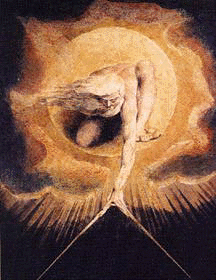And did you
get what
you wanted
from this life even so?
I did
And what
did you want?
To call
myself beloved, to feel myself
beloved on
the earth.
(Raymond Carver, 1938-1988)
On a recent stay at Gaia House Buddhist Retreat Centre*, one of the
teachers read out this poem, written while the author was terminally ill. The
question he poses remained with me for much of the retreat, for it is one which
surely touches on our deepest fear that we might be squandering this precious
life. Pause now to focus on the image the first two lines evoke and the unmistakeable
day of reckoning comes to mind. On that day our answer, whatever it is, will be
final; there will be no second opportunity, no prospect of returning to relive
a life that has come and gone. If, unlike the persona in Raymond Carver’s poem,
we have not loved or been loved, what then?
Posing a question of this magnitude retrospectively grants it a
solemnity that is in accordance with the gravity of the subject. “And did you
get what you wanted from this life?” goes far beyond day to day (ego) concerns of
possessions and career, rather, it is about living wisely, while we still have time to do
so. Could there be any more important question than that which asks whether we
are spending our time on this earth wisely?To live thus is to lead a worthwhile life, and the point of departure has to be how we conduct our relations with other beings on the same arduous journey
as ourselves. Integrity, honesty and compassion are some of the virtues that,
to a greater or lesser extent, comprise the fabric of how we relate each other.
If they are lacking, our hearts weigh heavy with their absence; the ache, the persistent
niggle serving as a reminder that we have lost something fundamental to the way
we could be living out our lives.
Seeking out a role model, Gandhi, Nelson Mandela, Mother Teresa, people
whose lives have been built on the foundation of these virtues, may not be of
much help. Such is their greatness that we often fall into despair about our
own capabilities. Being realistic, perhaps we have to acknowledge that the most
we can aim for is to show more kindness to ourselves and each other in our
everyday lives. This is a real possibility and one that would make life less
arduous for us and those we interact with. Toward the end of his life, Aldous
Huxley, writer and Buddhist scholar, touched on this theme when he confessed, “It's
a little embarrassing that after 45 years of research and study, the best
advice I can give people is to be a little kinder to each other.”
 |
| William Blake |
Kindness draws us out of
that state of self absorption which allows our life to bypass us. Opportunities
arise every day to live with kindness and they enable us to step back from whatever
concerns have hijacked our mind and treasure the opportunity of this moment to make
a connection, to feel alive. It is not just our fellow beings, but the Earth
too which is generous in affording us opportunities to remind us of this.
Midnight on moon-blanched pasture land and the cry of an owl fluttering on the
night breeze opens the heart to beauty and gratitude floods in. The furious
chirping of an angry blackbird, roused by the sight of a cat prowling in the
proximity of her nest commands our attention and we snap out of whatever
thoughts were preoccupying us and connect to our surroundings.
Our lifespan on this earth elapses in a micro second. We are less than
the blink of an eye in the history of this planet and yet this blink is our
sole opportunity to make something worthwhile out of the years that pass
between our birth and our death. A possible starting point is to pose the question
Raymond Carver has formulated and set about seeking an answer which we, as
individuals, find satisfying. I wish you luck.
No comments:
Post a Comment